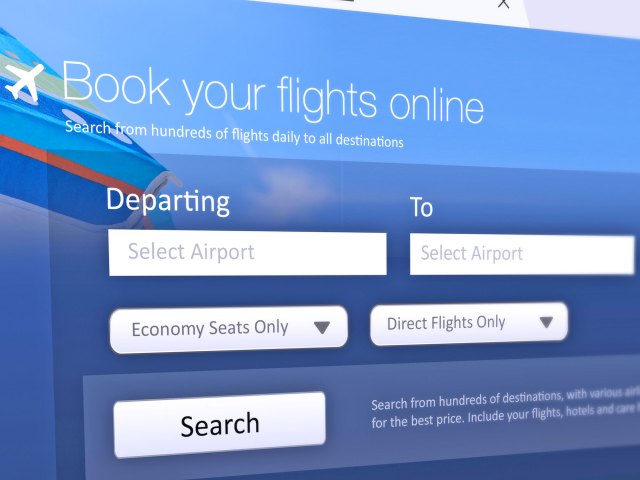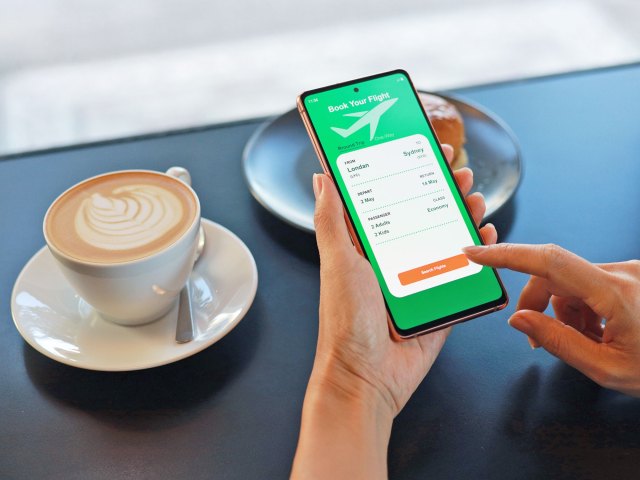Booking a flight is easier than ever thanks to the internet. Anyone can book their plane tickets in a matter of minutes without needing to call the airline or a travel agency like in the old days. But despite how convenient the process has become, snagging a plane ticket online comes with potential pitfalls. Here are eight potentially costly airline booking mistakes you might be making — and tips on how to avoid them.
You Book Too Early or Late

Many airlines price their flights conservatively when they first go on sale, so those early reservations will likely end up costing you more than if you booked closer to the departure date. Prices tend to start dipping around the six-month mark, so it’s worth waiting until at least then. On the other hand, if you wait until a few days before travel, you’ll likely end up paying a hefty sum for one of the dwindling available seats.
It’s useful to know the sweet spots for booking flights. According to a 2024 report from Expedia, that window is roughly 28 days before takeoff for domestic flights and around 60 days before international trips. The study found that customers who booked domestic flights 28 days before leaving were rewarded with 24% savings compared to those who waited until the last minute. For international travelers, those savings were closer to 10%.
You Book the Absolute Cheapest Fare

Rock-bottom fares are too tempting for some travelers to pass up. But keep in mind that some tickets are cheap for a reason. Budget airlines often charge travelers hidden fees that quickly add up by the time of your flight. For instance, you may be paying just $20 for the ticket itself, but then you’ll end up paying extra for checked or even carry-on luggage, seat selection, and in-flight food and drinks.
At the end of the day, those fees might add up to the point where you’re likely paying just as much, if not more, than standard fares on some non-budget airlines. To avoid this pitfall, take the time to do some research of all the fees on the airline’s site and a little math beforehand to add up the total cost of all those potential fees. This will allow you to determine if a seemingly “cheap” fare is worth booking.
You Depart on the Wrong Day

Certain days of the week typically have less demand, particularly for business travel, and airlines price fares accordingly. According to data from Hopper, the average cost of taking a domestic flight on a Tuesday is roughly 24% lower than those same seats for flights departing on a Sunday, which is the most expensive day of the week. Wednesdays are the next cheapest day to fly, and even flying on a Saturday or Monday will save you an average of around $50 versus Sunday departures. When it comes to international trips, Wednesday is the cheapest option, and you’ll net roughly 12% in savings if you leave on a Wednesday instead of a Sunday.
You Make Your Purchase on the Wrong Day

While Sunday may be the most expensive day to fly, making the actual purchase for your flight on a Sunday could end up costing less. According to Expedia’s 2024 Air Travel Hacks Report, booking your trip on a Sunday — no matter what day it departs — will net you around 8% savings compared to making that purchase on a Friday. Breaking it down by cabin, you can typically expect to save around 5% for both domestic and international economy, 7% for domestic business, and a whopping 24% on international business class tickets.
You Don’t Clear Your Browser Cookies

As you browse the internet, retail sites gather data about your shopping history in the form of cookies. These cookies may leave you vulnerable to a concept known as dynamic pricing. Essentially, companies — including travel sites — can display different prices depending on the consumer. They may even charge you more than a new customer if they see you’ve purchased expensive flights with them before.
To avoid falling victim to this strategy, browse using incognito mode or clear your cookies beforehand. To clear your cookies, visit the settings tab of your preferred browser, go to privacy settings, and delete past cookies. This won’t affect any of your bookmarks, but it’ll wipe the slate clean and allow you to shop for lower prices as if you were a new customer.
You Book With a Third-Party Website

Instead of using sites like Priceline to book, try using Google Flights, which displays all available flight options and prices across sites — and then allows you to book directly with the airline. Also remember that booking directly with the airline is useful in the event you need to cancel. In fact, there’s a rule that ensures a full refund without penalty to customers within 24 hours of booking, but only those who book directly with an airline. (Though some third-party providers offer a similar guarantee, you’ll want to do your research carefully.)
You Avoid Inconvenient Flights

In an ideal world, we’d all be taking direct flights at convenient times. But that’s often easier said than done, especially if you’re looking to save money. In order to net the cheapest fare, consider departing between 4 a.m. and 8 a.m., as doing so will save you roughly 2% compared to afternoon flights, according to Hopper. You can also save an average of 3% by snagging a return flight in the early morning instead of later in the day, as most travelers prefer to spend a full day at their destination before returning back home.
Some would argue that layovers are much more of an inconvenience than leaving early, and they may be right. Even still, those savings are often too good to pass up — you can save around 20% on flights that require a connection, according to historical data from Google Flights.
You Plug in Specific Travel Dates

It’s always important to maintain flexibility when traveling — and that includes before your trip even starts. If you’re looking to avoid paying a premium, consider searching for flights over the course of a larger window of time rather than a narrow set of specific dates. Services like Google Flights, Kayak, Skyscanner, or Hopper allow customers to view flights within a range of time and select the dates with the most attractive prices. These sites also allow for flexibility with regards to your destination, as you can search by general metro area or country rather than specific airports or even specific cities. The more flexible you are, the more likely you are to snag a better flight deal.
More from our network
Daily Passport is part of Optimism, which publishes content that uplifts, informs, and inspires.























